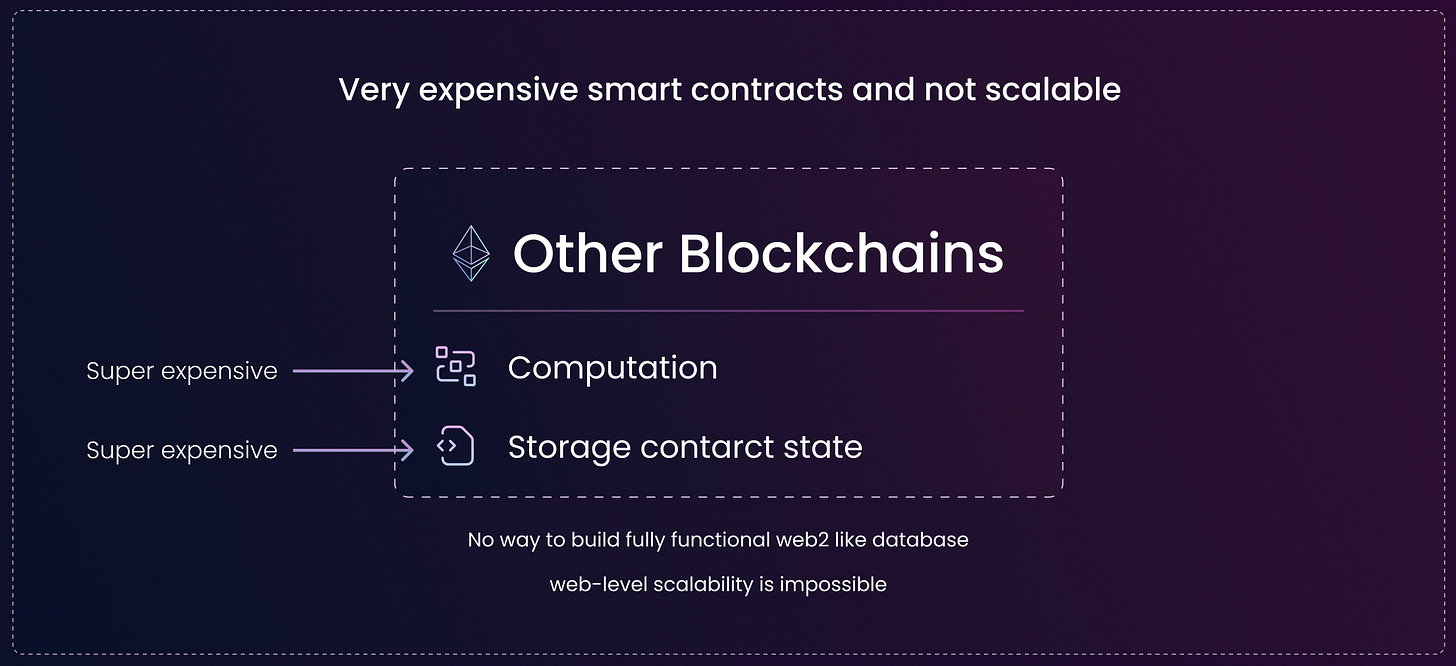The Paradigm Shift: Why Decentralized Databases are taking Web3 by storm
When you hear the word "dapp," you immediately associate it with decentralization, security, and reliability. However, the truth is that many web3 dapps, despite leveraging decentralized technologies like blockchain for trust and transparency, still rely on centralized databases to store their data. This introduces a significant level of centralization, putting your data at risk of hacking, unauthorized access, and potential misuse.
To put things into perspective, here are a few examples of multi-billion dollar companies with unlimited resources that have faced challenges caused by centralized databases:
Jan 2023, Twitter suffered a data breach as hackers exposed 235 million users' information. Source
Dec 2020, Google suffered a major outage that affected multiple services, including Gmail, Google Drive, and YouTube. The outage was caused by a problem with Google's centralized authentication system, which relies on a database to store user credentials. Source
Mar 2019, Facebook experienced a major outage that lasted for several hours and affected its core app, as well as Instagram and WhatsApp. The outage was caused by a server configuration change that led to issues with Facebook's databases. Source
Why a Decentralized Database was not possible before?
The idea of a decentralized database seemed elusive due to several key factors. One significant challenge was the high cost and lack of scalability associated with most blockchains.
Traditional blockchains, while providing decentralized and immutable data storage, often came with high transaction fees and limited scalability. The nature of their consensus mechanisms required significant computational power and energy consumption, making them expensive to operate and maintain.
Moreover, all blockchains are unable to handle the volume of transactions needed for large-scale database applications. For example, 350,000 tweets are posted per-minute on Twitter alone, source. This scalability constraint made it difficult to build a fully decentralized database that could handle the demands of modern applications.
Enabling Decentralized Databases: the role of Arweave in overcoming blockchains’ limitations
While Arweave primarily focuses on providing a decentralized, and permanent storage infrastructure, SmartWeave adds an additional layer of functionality by enabling the execution of smart contracts on the network.
Read more on SmartWeave here.
In addition, storing data on Arweave offers significant cost advantages compared to traditional web2 solutions. Currently, Arweave charges a one-time fee of $5 per GB for data storage, making it an economical choice for long-term storage needs. Source
In traditional blockchains, when you submit a transaction, validators must verify it on-chain. However, this process is not scalable as validators have limited transaction processing capacity, making it expensive and inefficient.
Read more on different Consensus Mechanisms here.
Arweave introduces a new consensus mechanism called “Storage-based Computation Paradigm” which basically separates computation from storage.
With this mechanism, blockchain validators are not responsible for handling the computation as it occurs off-chain on the client side. Consequently, this approach virtually costs nothing and makes unlimited scalability possible.
Read more on storage-based Consensus Mechanism here.
Introducing the Revolutionary Database Landscape
Arweave and its innovative consensus paradigm has sparked the emergence of multiple databases. Here, I will highlight the most prominent ones that have gained recognition in the industry:
WeaveDB
WeaveDB is a NoSQL database powered by Warp Smart Contracts on the Arweave blockchain. Designed to meet the growing demands of modern applications, WeaveDB offers a range of benefits including scalability, security, reliability, and speed.
WeaveDB provides a seamless experience, ensuring that users familiar with using traditional web2 databases like Firestore can easily adapt to using WeaveDB.
Some use cases include social media applications, decentralized science (DeSci), GameFi, Dynamic NFTs, DeFi orderbooks, and more.
Learn more about WeaveDB here.
Kwil
Kwil is an SQL database that enables structured data storage across a decentralized network. Kwil extends the functionality of traditional relational databases by providing a layer on-top of existing engines that enforce rules necessary for building secure, permissionless data stores.
Virtually every developer has used SQL at some point, making use of KwilDB feel native to Web2 devs.
Some common use cases for SQL databases include web applications, data analytics, financial systems, and content management systems (CMS).
Learn more about Kwil here.
FirstBatch
FirstBatch has built an open source decentralized key-value database called HollowDB. The goal of HollowDB is to provide a database for applications with actual production-level stability and feasibility for projects of any scale, while also being privacy-preserving with Zero-Knowledge Proofs.
Some common use cases of key-value databases include user profiles and personalization, distributed systems coordination, and messaging systems.
Learn more about HollowDB here.
Additionally, there are other databases being built in web3, you can read Messari’s enterprise report on decentralized databases here.
Conclusion
The emergence of innovative solutions like WeaveDB, Kwil, and HollowDB, powered by Arweave's groundbreaking Storage-based Computation Paradigm, has bridged the gap between decentralized technologies and robust data management. These databases offer scalability, security, and permissionless features, empowering developers to build applications that fully embody the principles of decentralization.
In summary, decentralized databases are the missing piece in the Web3 puzzle, enabling the realization of truly decentralized applications and unlocking the full potential of blockchain technology. With their advent, we can confidently stride towards a future where data is secure, transparent, and truly decentralized.




